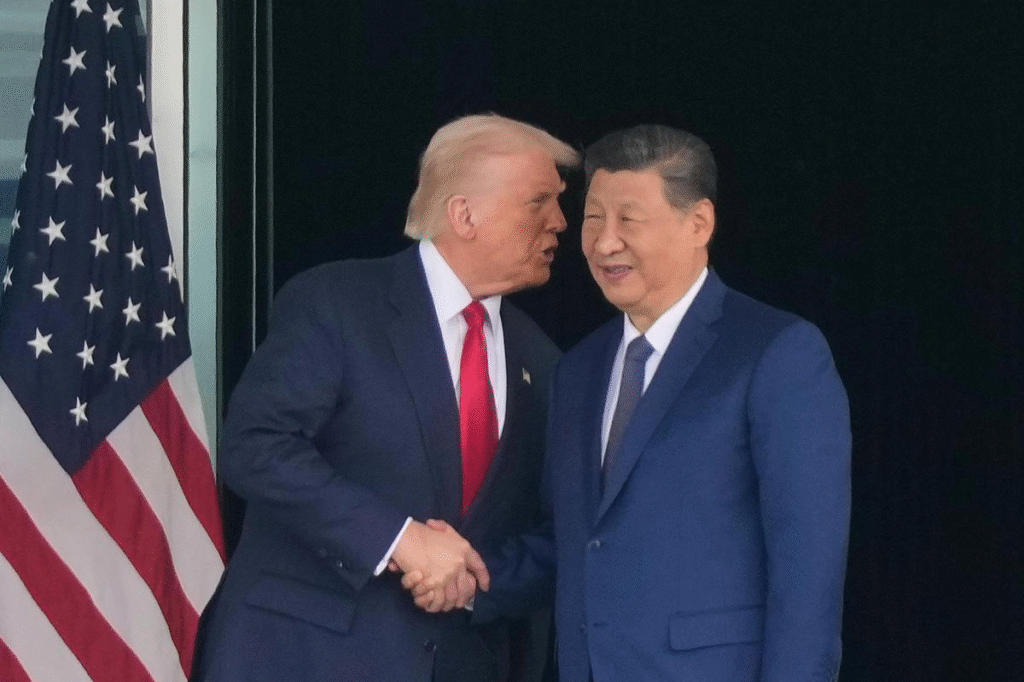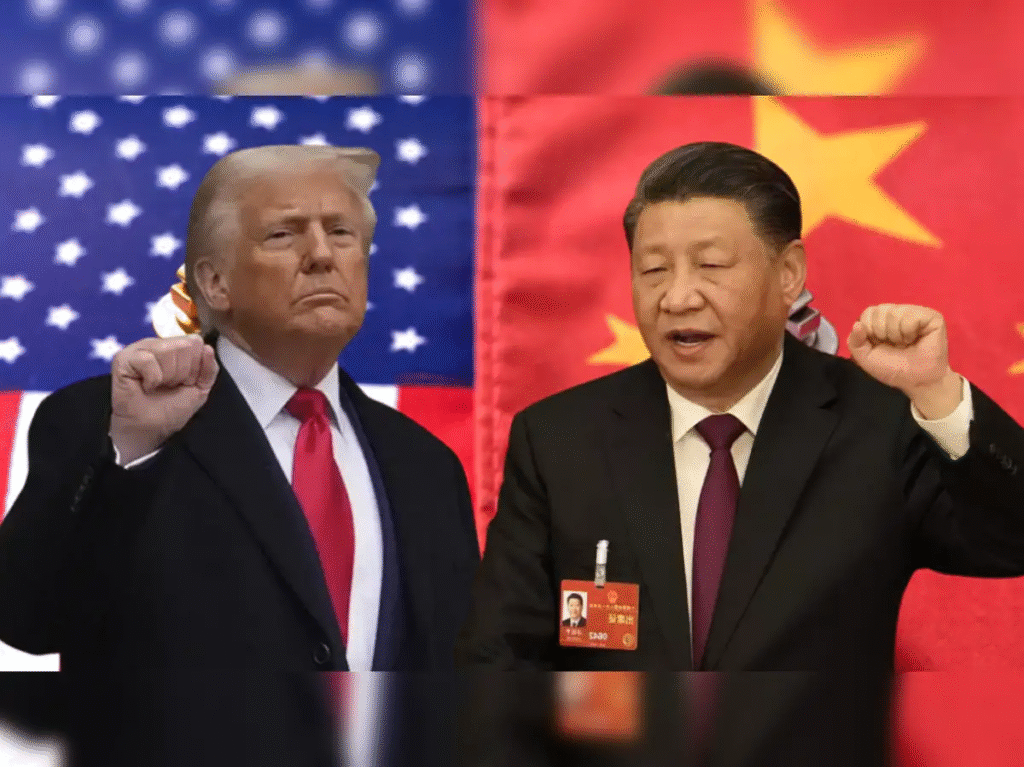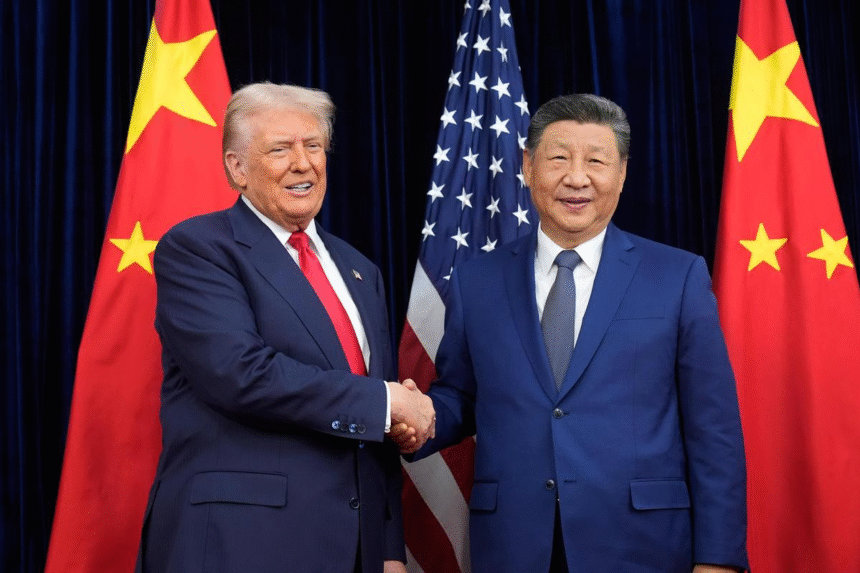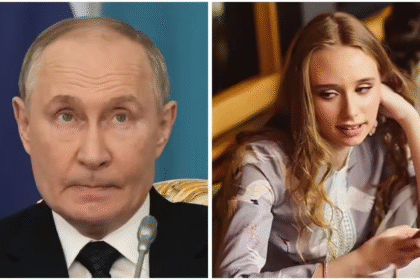Trump-Xi Breakthrough: 10% Fentanyl Tariff Deal Ends U.S.-China Dispute After High-Stakes Talks
In a major breakthrough, Donald Trump and Xi Jinping agreed to cut U.S. fentanyl tariffs on China to 10%, marking the end of a long-standing trade dispute after high-level talks
US President Donald Trump said Thursday (October 30, 2025) that he had agreed to cut fentanyl-related tariffs on China to 10% after talks with Xi Jinping in South Korea. Mr. Trumo and Mr. Xi met in Busan, South Korea, on Thursday (October 30, 2025), on the sidelines of the Asia Pacific Economic Cooperation (APEC) summit, to hold talks on dialling down their hugely damaging trade war.

Mr. Trump said that the dispute between China and the United States had been “settled”. Mr. Trump also said that he looks forward to exchanging views with Mr. Xi on important questions for the two countries.
The latest tit-for-tat escalations erupted earlier this month as Mr. Trump unveiled additional levies of 100% on China’s U.S.-bound exports, along with new export controls on critical software by November 1, in a reprisal against China curbing its critical rare earth exports.
In a major diplomatic and economic breakthrough, former U.S. President Donald Trump and Chinese President Xi Jinping have reached a crucial agreement to reduce tariffs on Chinese fentanyl-related imports to 10%. The announcement came following an intense round of high-level talks between the two leaders, signaling a potential thaw in the strained U.S.-China trade relationship that has dominated global markets for years.

Trump, addressing reporters after the meeting, declared that the “long-standing dispute with China has been settled,” describing the talks as “productive, fair, and decisive.” The decision to lower tariffs marks one of the most significant developments in the U.S.-China economic dialogue since the height of their trade war, which saw tariffs spike on billions of dollars worth of goods.
The decision to scale back fentanyl-related tariffs from 25% to 10% is being viewed as a calculated move to ease tensions between the two economic superpowers. The U.S. has long criticized China over its alleged role in the global fentanyl crisis, with the synthetic opioid contributing to a massive rise in overdose deaths across America.
By cutting tariffs, Trump signaled a willingness to cooperate with Beijing on a broader anti-narcotics framework. Chinese officials, in turn, have reportedly agreed to strengthen their domestic enforcement against illegal fentanyl production and export. The move is expected to create a more stable trade environment while tackling one of the most pressing public health challenges in the U.S.
Economists view this 10% tariff adjustment as a step toward rebuilding trust in global supply chains disrupted during the Trump administration’s earlier trade wars. Markets reacted positively to the announcement, with Asian stocks climbing and U.S. futures showing early gains.
Experts say the agreement could boost bilateral trade, potentially reopening pathways for technology, pharmaceuticals, and manufacturing cooperation between the two countries. “This deal reflects a strategic recalibration of U.S. policy toward China,” said Dr. Matthew Blake, a trade analyst at the Global Economic Forum. “Both sides needed a win — and this 10% tariff compromise offers one.”

Politically, the deal also underscores Trump’s pragmatic approach in his renewed push to position himself as a strong negotiator ahead of the upcoming U.S. elections. The White House emphasized that the agreement serves both American business interests and global stability.
Chinese President Xi Jinping welcomed the development, calling it a “new chapter of cooperation.” Xi highlighted the importance of “mutual respect and constructive engagement” between the two nations, noting that China remains open to further discussions on technology and climate cooperation.
Xi’s government had been seeking a reduction in trade penalties, arguing that punitive measures were hurting global growth and disrupting supply chains. The 10% fentanyl tariff cut, analysts say, offers Beijing both symbolic and economic relief while restoring its image as a cooperative trade partner.

This agreement could pave the way for broader trade normalization talks, including issues surrounding semiconductors, energy, and artificial intelligence. Observers believe this is the first sign that both nations may be stepping away from the economic brinkmanship that defined the last decade.
For now, the Trump-Xi meeting has sent a strong signal to the world that two of the largest economies are ready to rebuild their partnership — cautiously but cooperatively. The 10% fentanyl tariff decision might just be the opening act in a new era of economic diplomacy between Washington and Beijing.
Read Also : Breaking! India vs Australia 1st T20 Live: 3 Key Moments Before Rain Stopped Play in Canberra








